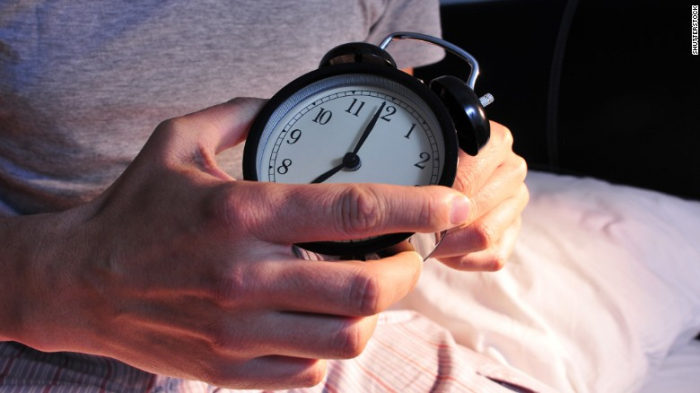Instead, concerned moms and dads should focus on maintaining a regular routine when it comes to scheduling meal and bed times, said Dr. Claude Marcus, a professor of pediatrics at the Karolinska Institute in Sweden and an author of the study, which published Tuesday in the journal Pediatrics.
The research, which was part of a wider study on obesity, focused on 107 children in Sweden, with 64 of the children having a parent who classified as overweight or obese.
The researchers monitored each child's weight, height and waist circumference from ages one to six; all of the children had similar measurements when the study started. Sleep was measured for seven consecutive days once a year for the length of the study by using a tracker worn on the child's wrist.
They found that children who habitually went to sleep late -- defined by the researchers as past 9 p.m. -- had a wider waist and higher BMI (body mass index) by the end of the study.
"This late bedtime was one factor that really stood out. It was associated with increased weight," said Marcus. "However, what we can see is [only] an association. If you put your kids to bed earlier, would it change anything? That's something we don't know."
Marcus suggested that staying up beyond 9 p.m. could be one sign of an overall lifestyle that puts kids at greater risk of being overweight, rather than their weight gain being directly connected to their bedtime.
He noted that kids' bedtimes around the world vary widely -- with kids in places like Spain and some parts of Asia habitually staying up much later than the study's cut-off time.
"My personal hypothesis is that this is more of a marker of a more irregular life," he said.
In a linked commentary on the research, Dr. Nicole Glaser and Dr. Dennis Styne, both pediatric endocrinologists at UC Davis Health in Sacramento, California, said it was possible that obesity and inadequate sleep might be due to other influences, such as "excess screen time, inadequate exercise, or less vigilance overall about health habits on the part of the family."
However, they added that it was possible there could be a physical link. That's because some of the brain regions involved in regulating sleep and wake cycles also manage eating and fasting behavior.
"Sleep and body weight regulation are therefore intricately intertwined on multiple levels," wrote Glaser and Styne, who were not involved in the research.
A major limitation of the study was the small number of children involved. However, the researchers were able to objectively measure sleep characteristics via the wrist tracker rather than relying on information relayed by parents and children, something Marcus said is often unreliable.
Previous research has found that a shorter sleep duration is linked to an increased risk of obesity in childhood. However, the study from Marcus' team found that no matter how long a child slept, going to bed after 9 p.m. was associated with an increased of obesity and a higher BMI.
While children of overweight or obese parents were more likely to be overweight, the study found that these children did not sleep differently than their peers.
In adults, Marcus said that irregular sleep and less sleep have been associated with a greater risk of obesity, with some suggestion that people who sleep less eat more.
"The causality is difficult to establish. It could also be an effect of stress, rather than sleep," Marcus said.
"It's also the same for kids with different socioeconomic scores, we know that it's associated with obesity but it's very difficult to identify the differences in their way of living," he added.
The study said that efforts to prevent obesity should pay more attention to sleep as it appears to be involved in a family's vulnerability to the development of obesity.
CNN
















































